Search Results
Showing results 921 to 940 of 1185

Milli's Super Sorting Challenge
Source Institutions
In this activity, learners separate materials based on their special properties to mimic the way recyclables are sorted at recycling centers.
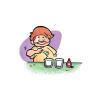
Defining Dissolving
Source Institutions
In this introductory activity, learners discover that sugar and food coloring dissolve in water but neither dissolves in oil.
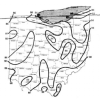
How is Coastal Temperature Influenced by the Great Lakes and the Ocean?
Source Institutions
In this two-part lesson, learners discover how large bodies of water can serve as a heat source or sink at different times and how proximity to water moderates climate along the coast.
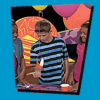
Balloon Flinker
Source Institutions
In this activity, learners make a helium balloon "flink"--neither float away nor sink to the ground. Use this activity to introduce physics concepts related to gravity, density, and weight.

Cauldron Bubbles
Source Institutions
In this activity, learners mix up a bubbly brew and examine density. Learners explore how they can make different materials fall and rise in water using oil, water, and salt.
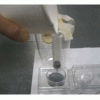
Column Chromatography
Source Institutions
In this activity, learners separate the components of Gatorade using a home-made affinity column.
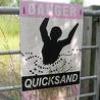
COSI Quicksand
Source Institutions
In this chemistry experiment, learners get to make a very bizarre substance using corn starch and water. Is it a solid? Is it a liquid? Or is it a different kind of substance entirely?

Colorblind Dogs
Source Institutions
This activity (on page 2 of the PDF under SciGirls Activity: Colorblind Dogs) is a full inquiry investigation into dogs' ability (or inability) to see color.
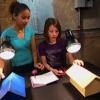
Doghouse Design
Source Institutions
This activity (on page 2 of the PDF under SciGirls Activity: Doghouse Design) is a full inquiry investigation into absorption and reflection of radiant energy.
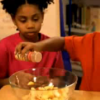
Applesauce
Source Institutions
In this "Sid the Science Kid" activity from Episode 109: The Perfect Pancake, learners make applesauce to explore irreversible change.
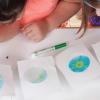
Chemistry Is Colorful
Source Institutions
In "Chemistry is Colorful" learners explore different materials through paper chromatography.
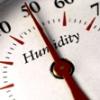
Making Sense of Sensors
Source Institutions
In this activity, learners explore sensors and focus specifically on how to measure humidity using a sensor.
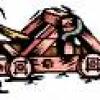
Catapult
Source Institutions
In this activity about transfer of energy, learners get to build their own catapult using nothing more than a plastic spoon and some tape.

Test Density with a Supersaturated Solution
Source Institutions
Learners create three solutions with different levels of salinity. They compare the density of these solutions by coloring them and layering them in a clear plastic cup and in a soda bottle.

Egg Bungee Jump
Source Institutions
In this activity, learners design a bungee jump for an egg using nylon stockings.
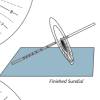
Equatorial Sundial
Source Institutions
In this activity, learners make an equatorial sundial, which is simple to construct and teaches fundamental astronomical concepts. Learners use the provided template and a straw to build the sundial.

How Our Environment Affects Color Vision
Source Institutions
In this lab (Activity #1 on page), learners explore how we see color.

Multitasking Mania
Source Institutions
In this activity, learners conduct scientific research on multitasking. Learners determine if multitasking with media while doing homework affects their ability to successfully complete the homework.
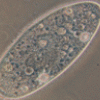
Biological Succession in a Microecosystem
Source Institutions
This laboratory activity helps learners understand the concept of biological succession by simulating the process in a microenvironment with various protozoans.
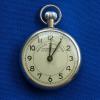
Auditory Acuity
Source Institutions
This activity (8th activity on the page) tests learners' ability to identify things using only the sense of hearing.
